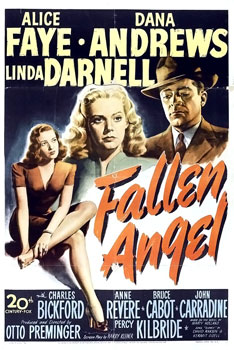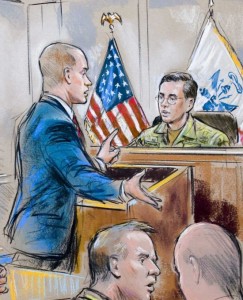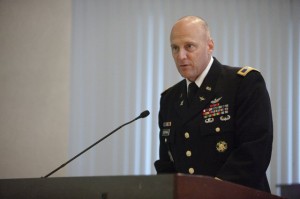Markin comment:
Read the entries below. Does that first entry sound like a man who was on the same page politically as "DeLawd," Martin Luther King? To pose the question is to give the answer. As close as I was to the King-led movement in those days Malcolm X could still stir me in a way King with all his obvious eloquence could never do. Truth to power-no question.
Malcolm X on Racist America
The text of this telegram to Rockwell, head of the American Nazi Party, was read aloud by Malcolm X at a public rally of the Organization of Afro-American Unitv in Harlem on January 24. 1965.
Public Notice to George Lincoln Rockwell
"This is to warn you that I am no longer held in check from fighting white supremacists by Elijah Muhammad's separatist Black Muslim movement, and that if your present racist agitation against our people there in Alabama causes physical harm to Reverend King or any other black Americans who are only attempting to enjoy their rights as free human beings, that you and your Ku Klux Klan friends will be met with maximum physical retaliation from those of us who are not hand-cuffed by the disarming philosophy of nonviolence, and who believe in asserting our right of self-defense—by any means necessary."
Discussion with American Ambassador in Africa
"He said, 'As long as I'm in Africa, I deal with people as human beings— For some strange reason color doesn't enter into it at all.'
"He said, 'But whenever I return to the United States and I'm talking to a non-white person, I'm conscious of it, I'm self-conscious, I'm aware of the color differences.'
"So I told him, 'What you're telling me, whether you realize it or not, is that it is not basic in you to be a racist, but that society there in America, which you all have created, makes you a racist.' This is true, this is the worst racist society on this earth. There is no country on earth in which you can live and racism be brought out in you— whether you're white or black—more so than this country that poses as a democracy. This is a country where the social, economic, political atmosphere creates a sort of psychological atmos¬phere that makes it almost impossible, if you're in your right mind, to walk down the street with a while person and not be self-concious, or he or she not be self-conscious— But it's the society itself."
*******
From Spartacist- May-June 1964
MALCOLM X
Of all the national Negro leaders in this country, the one who was known uniquely for his militancy, intransigence, and refusal to be the liberals' front-man has been shot down. This new political assassination is another indicator of the rising current of irrationality and individual terrorism which the decay of our society begets. Liberal reaction is predictable, and predictably disgusting. They are, of course, opposed to assassination, and some may even contribute to the fund for the education of Malcolm’s children, but their mourning at the death of the head of world imperialism had a considerably greater ring of sincerity than their regret at the murder of a black militant who wouldn't play their game.
Black Muslims?
The official story is that Black Muslims killed Malcolm. But we should not hasten to accept this to date unproved hypothesis. The New York Police, for example, had good cause to be afraid of Malcolm, and with the vast resources of blackmail and coercion which are at their disposal, they also had ample opportunity, and of course would have little reason to fear exposure were they involved. At the same time, the Muslim theory cannot be discounted out of hand because the Muslims are not a political group, and in substituting religion for science, and color mysticism for rational analysis, they have a world view which would encompass the efficacy and morality of assassination, a man who has a direct pipeline to God can justify anything.
No Program
The main point, however, is not who killed Malcolm, but why could he be killed? In the literal sense, of course, any man can be killed, but why was Malcolm particularly vulnerable? The answer to this question makes of Malcolm's death tragedy of the sharpest kind, and in the literal Greek sense. Liberals and Elijah have tried to make Malcolm a victim of his own (non-existent) doctrines of violence. This is totally wrong and totally hypocritical. Malcolm was the most dynamic national leader to have appeared in America in the last decade. Compared with him the famous Kennedy personality was a flimsy cardboard creation of money, publicity, makeup, and the media. Malcolm had none of these, but a righteous cause and iron character forged by white America in the fire of discrimination, addiction, prison, and incredible calumny. He had a difficult to define but almost tangible attribute called charisma. When you heard Malcolm speak, even when you heard him say things that were wrong and confusing, you wanted to believe. Malcolm could move men deeply. He was the stuff of which mass leaders are made. Commencing-his public life in the context of the apolitical, irrational religiosity and racial mysticism of the Muslim movement, his break toward politicalness and rationality was slow, painful, and terribly incomplete. It is useless to speculate on how far it would have gone had he lived. He had entered prison a burgler, an addict, and a victim. He emerged a Muslim and a free man forever. Elijah Muhammad and the Lost-Found Nation of Islam were thus inextricably bound up with his personal emancipation. In any event, at the time of his death he had not yet developed a clear, explicit, and rational social program. Nor had he led his followers in the kind of transitional struggle necessary, to the creation of a successful mass movement. Lacking such a program, he could not develop cadres based on program. What cadre he had was based on Malcolm X instead. Hated and feared by the power structure, and the focus of the paranoid feelings of his former colleagues, his charisma made him dangerous, and his lack of developed program and cadre made him vulnerable. His death by violence had a high order of probability, as he himself clearly felt.
Heroic and Tragic Figure
The murder of Malcolm, and the disastrous consequences flowing from that murder for Malcolm's organization and black militancy in general, does not mean that the militant black movement can always be decapitated with a shotgun. True, there is an agonizing gap in black leadership today. On the one hand there are the respectable servants of the liberal establishment; men like James Farmer whose contemptible effort to blame Malcolm's murder on "Chinese Communists" will only hasten his eclipse as a leader, and on the other hand the ranks of the militants have yet to produce a man with the leadership potential of Malcolm. But such leadership will eventually be forthcoming. This is a statistical as well as a social certainty. This leadership, building on the experience of others such as Malcolm, and emancipated from his religiosity, will build a movement in which the black masses and their allies can lead the third great American revolution. Then Malcolm X will be remembered by black and white alike ad a heroic and tragic figure* in & dark period of our common history. •










